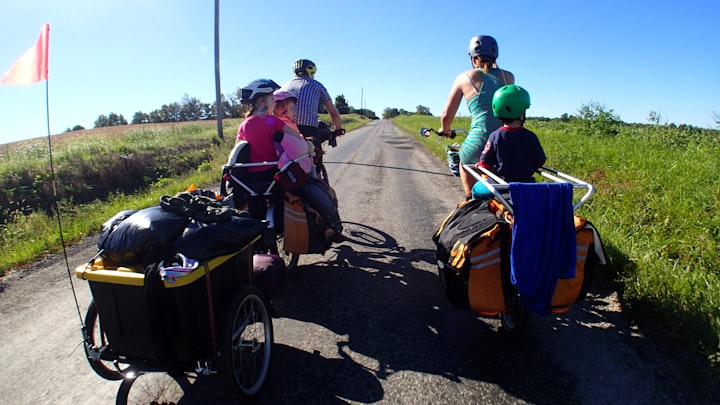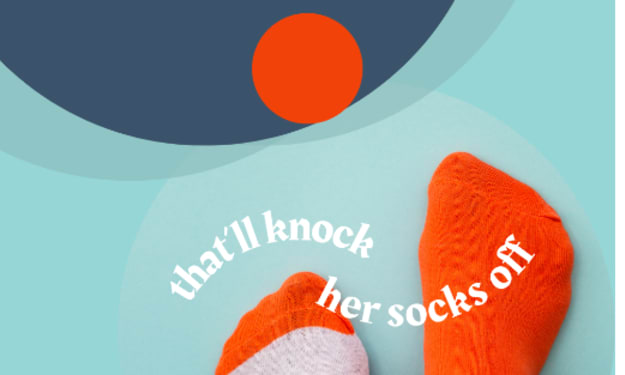MYTHS ABOUT PARENTING AND CHILDREN UPBRINGING
CREATING A BALANCE IN YOUR PARENTING EXPERIENCE.

"Parents shouldn't fight(quarrel) in front of their children", good luck........
"Sitting close to the TV will damage kids' vision",
"Strict parents raise well-behaved kids",
"Strict parents raise possibly kids who look like they're well behaved to the parents but actually act out more than any other child".
These are some myths about parenting and children's upbringing, which are common issues with babies but we are going to be talking about older children as well. So let's get started.
MYTH 1: The Terrible Twos Are Indeed Terrible
Though you may feel like they're terrible and so it's also personal it's not that it's terrible twos. It's having the developmentally appropriate expectations of what a two-year-old is capable of, recognizing their need, labeling and naming those feelings for them because they're struggling to understand what's happening and what's making them so upset while also being there to set appropriate boundaries and limits. So if you can really even look at this age as a time of children learning to control their emotions but it's still not well developed it gives you a whole new lens to stay calm and what can be stressful times when they're really upset.
MYTH 2: A Slap On The Bottom Never Hurt Anyone
You might think well I was spanked here and there as a child and I turned out fine. You probably aren't doing forever damage to your child with the occasional spanking, it's that when you spank you are more likely to up the ante and spank more and harder, as your discipline strategy isn't working. What you want is to be the person that they come to and if they're afraid of you, if they do something wrong which they will, they will lie to you about it. Parents might think by hitting, they're getting a kid who's behaving better, what they're doing is getting a child who gets really good at hiding their bad behavior. But take that moment and be like what I'm trying to teach you is to not swing a bat in a house to a lamb and that actually is a great possible learning experience for your child to see you get upset, calm yourself down, and then really address it in a more long-term productive way.
MYTH 3: Strict Parents Raise Well-behaved Kids
when you think you're going to be just an authoritarian parent who just says "because I said so", what you get is either a very rigid child who is terrified of you so they don't want to break any rules or a child who is set off to be incredibly rebellious and have oppositional issues because they cannot feel seen and heard. It's absolutely fine to have limits that actually makes your child feel safe but if you can do it in a sensitive way where you know it's more about discussions and back-and-forth interactions that show that you're responding to your child and that you value their input that's how you get a person who wants to open up to tell you about their mistakes because we all make mistakes and you want to be there to help them through that.
MYTH 4: Saying Yes Equals Failing
My mom used to have this phrase which you'd say "yes means I'm lazy, no means I care". The saying yes equals failing likely comes from the idea that you just don't have boundaries for your children. But saying yes you want to go to that party and I'm not letting you and I know that's really hard, that helps your child's brain go into an open state. If you say no you're not going anywhere and you're not allowed to do that, your child goes into a defensive state and it's going to end up potentially arguing with you not hearing you, but going into what's called fight flight or freeze. Giving your child the ability to know that you understand them is a good thing but not having boundaries and saying yes to any question they have and saying yes they can do any behavior because you would rather them just feel happy all the time, that is a failure.
MYTH 5: After the first three years, your child's brain is set for life
So this is a myth which comes from the idea of the power of those first few years. in fact building 1 million or more neural connections per second in those first few years, it's remarkable. It's not a myth that your baby's brain grows drastically and the most in those first few years but it is a myth that your baby's brain is set in those first three years.
MYTH 6: Kids Go Hyper on Sugar, and "My Child Got a Cold From The Cold"
Children do not get cold from the cold, they get colds from people with the cold. There are now studies that show that in fact it is parents perception that the sugar is going to make them hyper and if the parents think they're going to be hyper on tour, the child will actually almost be like a self-fulfilling prophecy. Certainly if your child is hungry and has not eaten for a while they might like some children not behave as well. So you want to make sure your child has good nutrition throughout the day, and certainly sugar from a health perspective. You don't want your child having lots of sugar because it's not good for their body but it has not actually been linked to hyperactivity.
MYTH 7: It's Better To Shield Children From Loss
This is a difficult question because of course if you could prevent loss for children and not have them have difficult horrible traumatic experiences, that would be wonderful. But if you pretend those experiences haven't happened or shield children from information about loss that they inevitably are going to find out about, what you're doing is preventing them from building the resilience that they're going to need to build by experiencing loss and then support and love to help them get through it. And so it's very important to just be straightforward again in a sensitive and loving way and explain the loss to your child so that they don't also have fantasies that something will change. Because a child who hears that their dog ran away instead of their dog died their bodies working and they're not coming back could spend days weeks if not years fixating on waiting for that moment to come. Sitting with them through difficult experiences so that they know they can get through them is a much more powerful lesson for their future.
MYTH 8: Any way all kids are picky
Not all kids are picky. Many children, especially when they're trying new foods spit it out, not liking it. You have to reintroduce the food multiple times, they say 10 to 15 times sometimes for a food that your child may have initially seemed to not like, so if you can make it seem less of a battle, then it's less of a battle for your child to try to win. The other thing is that parents can influence pickiness by accommodating pickiness. So over the years if every time your child doesn't want something you panic that they're going to starve or they're not going to be able to go to school because they're not in, unless you give them the sugared cereal instead of the healthy breakfast and you accommodate their pickiness you're going to end up kind of creating again a self-fulfilling prophecy of a picky kid.
MYTH 9: Children should come first
That's a tricky one because you've made the decision to raise a child and be their person that's going to take into account their health and well-being. That said, if you sacrifice yourself and your mental health for your child, you're actually taking away from your child's development. Think about on an airplane when they say put your oxygen mask on first. You cannot take care of another person without taking care of yourself and also you are showing your child through modeling that you can have self-compassion and self-care and still love other people and in fact thrive loving other people because you've taken that time.
MYTH 10: Night-time and Day-time Toilet Training Should Happen at The Same Time
There are some children who you toilet trained and basically, they're done and they're done overnight too. But for most children actually, daytime toilet training occurs before nighttime tour training but there are many children who will still wear pull-ups and have nighttime accidents up to age five or through age five in fact and that is completely normal.
MYTH 11: Parents Shouldn't Fight (Quarrel) in Front of Their Children:
Good luck if you start a fight, then at least show your children how you resolve a fight so that they don't have to sit with the discomfort of wondering what's going on behind closed doors. And of course if you can regulate yourself in such a way that you can have a wonderful and open dialogue as a disagreement that's even better. But to try to never fight in front of your kids but have that tension where you're like let's take this in the other room where you're giving each other eyes is something that your children will pick up on.
MYTH 12: Sitting Close To The TV Will Damage Kids Vision:
This is a common myth. Sitting close to the TV does not damage your vision however something that everyone should be aware of is looking and fixing your eyes on one spot for a long period of time especially if it's close to you. It can affect the eyes you may want them to look off in the distance to help with what we call an eye strain. Now, if you notice that your child sitting close to the TV has such experiences because you think they can't see, that will be something you would want to discuss with your pediatrician:
MYTH 13: Praising kids makes them smarter:
This is a fun one because getting praised for the process but not the outcome, getting an A on your paper is always going to promote a more growth mindset, a fixed mindset can come from being praised for the outcome. So if you get a's all the time in english you're going to kind of avoid the other subjects that might be more challenging because you've been praised for the a's and not how you're taking on a challenge of doing a new subject that's a little bit harder for you. And on the flip side If you feel like you could really use a little bit more support for them go ahead and praise them just make sure that it is support, that you believe in them and that with effort and strategies they're growing smarter as opposed to telling them they're the most brilliant person in the world.
MYTH14: Children need protection 24/7:
Because the world is a dangerous place children can't have protection 24/7, and the world is a dangerous place. Those are two separate things even though we are aware that there are some really scary things going on in the world and even though your children might be given a sense that they're generally going to be pretty safe if they follow basic guidelines around being street smart and taking care of their bodies and developmentally appropriate. Freedom is much better for them because kids who don't know how to cross the street by looking both ways because their parents are taking them across the street actually are in more danger. They don't know how to protect themselves, what they need to do is at an age-appropriate time slowly but surely learn to live more independent lives making the good choices that you've taught them to make.
You'll end up parenting like your parents both myth and true depending on your consciousness about it if you had parents who were authoritarian and used fear-based parenting. If you didn't take note of that and think about how you want to parent your child you may revert to what feels like home to you. However, if you come to terms with and think through the pain or difficulty of what you experienced in your childhood that you wouldn't want and think about the positive parts of your childhood that you want to repeat as you raise your children, then you'll be able to consciously parent your children however you would like so that you can then thrive as a parent.
MYTH 15: Parenting comes naturally
This is a myth. It's very easy to see how people would think. This is a truth because having children seems a natural process. What can happen is you can feel like, "I should know all of this, I'm the parent", what you know best is your child. You're born at the same time as your baby as a parent right, you were not a parent until they were born so you're growing and developing together throughout your child's lives. And so as you're growing and developing as a parent you can find those strengths and enhance them. You're going to hear a lot of myths as a parent, it's one of everybody's favorite things to do and it is to tell a parent how to be a better parent. You're doing great just by virtue of the fact that you sought out watching information about parenting and your child's development and when you do feel like you're struggling don't hesitate to reach out for support and resources that you can trust.
About the Creator
Oluwasegun Samuel Owolabi
A prolific writer. Writing interesting and impactful content.
Reader insights
Outstanding
Excellent work. Looking forward to reading more!
Top insight
Eye opening
Niche topic & fresh perspectives





Comments (2)
Nice thank you for this life changing piece
This is an excellent piece and also eye opening to vital areas on parenting. Really a commendable work